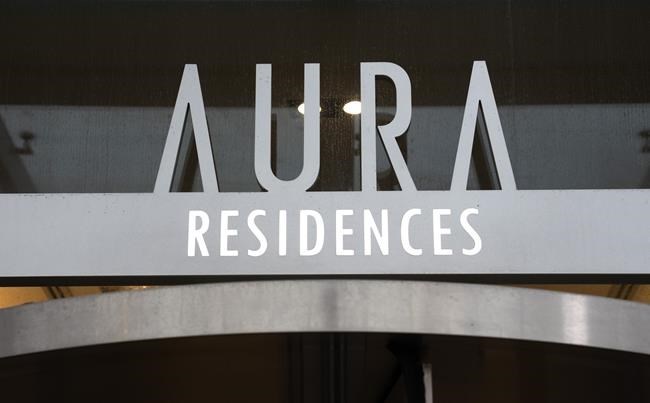Mortgage and title fraudsters who impersonate homeowners and tenants have targeted at least 32 properties in Ontario and British Columbia, investigators and official warnings suggest.
Insurance investigator Brian King, president and CEO of King International Advisory Group, said his firm had received 30 such claims in Ontario.
They include six instances of "total title fraud" in which con artists pose as homeowners to list properties for sale.
In B.C., the Land Title and Survey Authority warned in 2021 that there had been two attempts of title fraud involving the impersonation of owners who lived abroad.
King said such impersonators had to put in performances worthy of an "Emmy Award," but they were not the only people involved in the scam.
"What you got to understand is that the people that are doing this, it's a group … It takes several people to make this process work," said King.
He said his firm was handling six claims of total title fraud, with several coming forward after recent media coverage of the fraud technique.
King's investigations include the case of Toronto condo owner Moffy Yu, who discovered that her two-bedroom downtown property had been listed and sold last year for $970,000 by someone using her name.
The property's title now lists someone else as the owner, although a "caution" notice has been placed on the document by the director of land titles, indicating that it is disputed. Toronto Police confirmed they are investigating.
King said total title fraud was once "very, very rare," but now it "seems like every other file that's coming in is a total title transfer."
The B.C. Land Title and Survey Authority said in a March 2021 notice that it was aware of two cases involving property managers being tricked into taking instructions from fraudsters impersonating owners who lived abroad.
It said one of the frauds was successful.
“Both properties were listed for sale by realtors who accepted a scanned copy of a forged passport to verify the identity of the supposed owner,” the notice said.
King said title and mortgage fraud typically involve homes with low or no mortgages. After identifying such a home, the fraudsters research the homeowners to create fake identification in their name.
He said "actors" are then paid $5,000 to $10,000 to put the property on the market and seek a "fairly quick" sale with an unsuspecting buyer.
"They are not necessarily going for the most amount of money because they want to deal with this quickly. The quicker they get in and out, the better," said King.
He said a recent case his firm investigated involved a home valued at $2.2 million in Ontario.
The true owners contracted a property management company to rent out their home after moving to England for work.
But it was rented by fraudsters who moved in, impersonated the owners, and sold it for $1.7 million within two weeks.
In another type of property fraud, impersonators pose as homeowners to obtain mortgages from private lenders, said King.
Compared to total title fraud, King said mortgage fraud was much "easier and quicker."
But the potential payoff for total title fraud was much greater.
"When they sell to an unsuspecting (buyer), they get not only the mortgage amount, they get the equity amount as well," said King.
He said total title fraud resulted in a legal "mess" that could take a year and a half for the courts to sort out.
Daniela DeTommaso, president of First Canadian Title Company Limited, said the firm had seen a "definite rise" in title fraud.
Although she could not say how many cases it had received, DeTommaso said it was growing, although it involved "small numbers."
DeTommaso said the sophistication of fraudsters was increasing.
"We are seeing identity theft where you look at the ID, unless you are trained, you would never be able to tell that it has been falsified."
DeTommaso said people with home title insurance who were targeted by fraudsters could hand the matter over to their insurance company to "step in and take over", contacting the police, notifying all parties involved, and hiring lawyers to fix the problem.
But in some cases, the homeowners would balk at the lengthy court proceedings and walk away from the property, taking a payout instead.
Neesha Hothi, communications director of the Better Business Bureau of Mainland B.C., said title fraud shows the importance of protecting personal information "like gold."
"When you are getting rid of any bank documents, bills and etc. Make sure you are shredding those, you don't want your bank account numbers, your social insurance and other personal information out there," she said.
Hothi said another measure is to request an alert on title activity on a property, such as someone attempting to place a mortgage on it.
Yu, who now lives in China's Hubei province, said she couldn't sleep over the theft of her home as she worked with her insurance company and King to find a solution.
“Hopefully, I can hear some good news this year,” said Yu.
This report by The Canadian Press was first published on Jan. 26, 2023.
Nono Shen, The Canadian Press
Note to readers: This is a corrected story, a previous version misidentified Daniela DeTommaso's gender.



